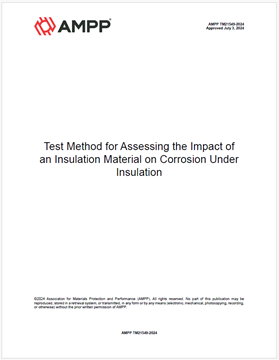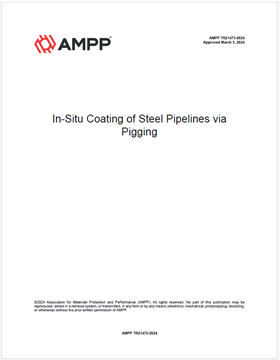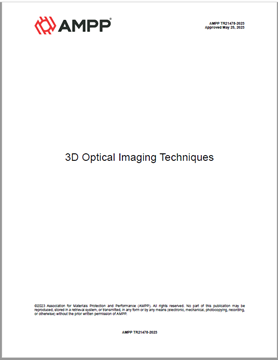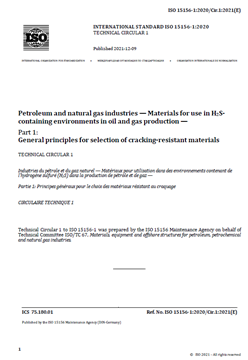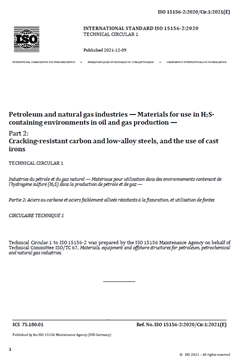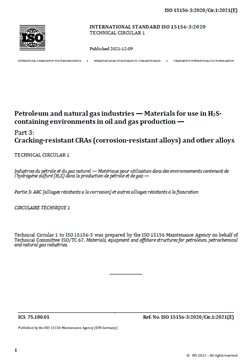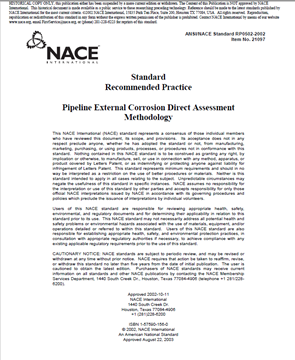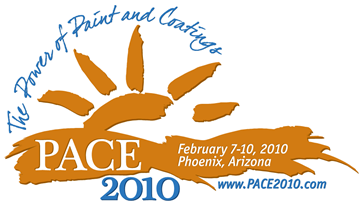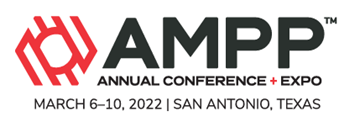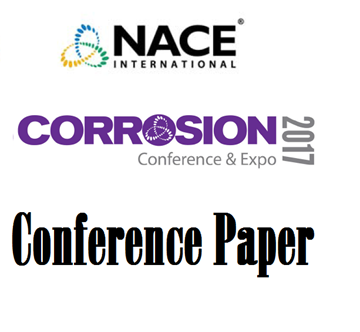Search
Pipelines, Tanks, and Underground Systems
View as
Sort by
Display
per page
AMPP TM21549-2024, Test Method for Assessing the Impact of an Insulation Material on Corrosion Under Insulation
Product Number:
AMPP TM21549-2024
Publication Date:
2024
$109.00
AMPP TR21473-2024, In-Situ Coating of Steel Pipelines via Pigging
Product Number:
AMPP TR21473-2024
Publication Date:
2024
$109.00
AMPP TR21478-2023, 3D Optical Imaging Techniques
Product Number:
AMPP TR21478-2023
Publication Date:
2023
$109.00
ANSI/NACE MR0175/ISO 15156-2 Technical Circular 3 (2019)
Product Number:
15156-2-SG2019
Publication Date:
2019
$0.00
ANSI/NACE MR0175/ISO 15156-3 Technical Circular 3 (2019)
Product Number:
15156-3-SG2019
Publication Date:
2019
$0.00
ANSI/NACE MR0175-2021/ISO 15156-1:2020 Technical Circular 1 (for Part 1)
Product Number:
15156-1-2020
Publication Date:
2021
$25.00
ANSI/NACE MR0175-2021/ISO 15156-2:2020 Technical Circular 1 (for Part 2)
Product Number:
15156-2-2020
Publication Date:
2021
$25.00
ANSI/NACE MR0175-2021/ISO 15156-3:2020 Technical Circular 1 (for Part 3)
Product Number:
15156-3-2020
Publication Date:
2021
$25.00
ANSI/NACE RP0502-2002 Pipeline External Corrosion Direct Assessment Methodology
Product Number:
RP0502-2002
Publication Date:
2002
$179.00
Antennas and Cable Attachment Methods for Water Tanks: A Comparative Study
Product Number:
41210-582-SG
Publication Date:
2010
$20.00
Assessment And Rehabilitation Of Piping Inside Water And Wastewater Treatment Plants
Product Number:
51322-18200-SG
Publication Date:
2022
$20.00
Assessment of Microbially Influenced Corrosion Threats Using Molecular Microbiological Method
Product Number:
51317--9384-SG
ISBN:
9384 2017 CP
Publication Date:
2017
$20.00

